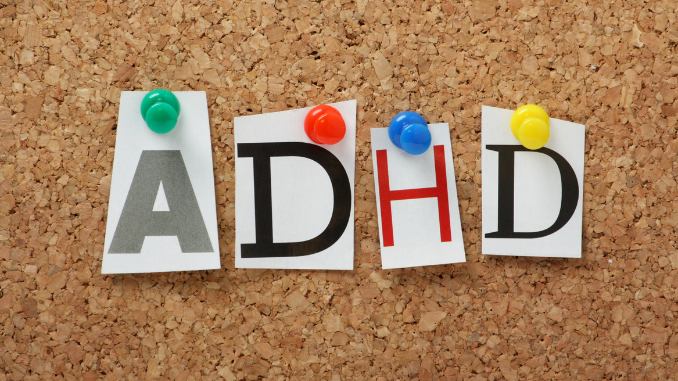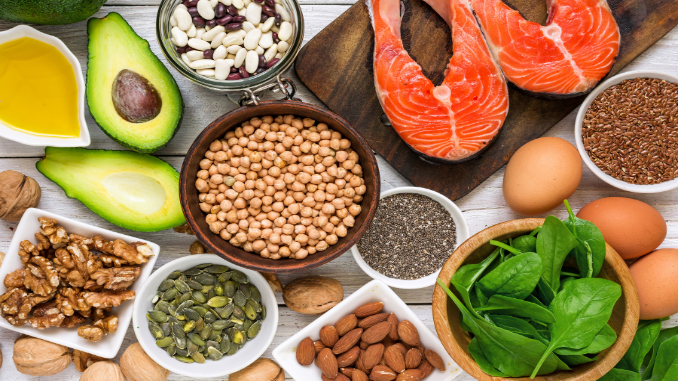It can be challenging to live with attention deficit hyperactivity disorder (ADHD), especially when it comes to staying focused and controlling impulses. While medication is often prescribed to manage symptoms, research has shown that certain foods for ADHD can also play a role in improving symptoms. This post will give you practical tips, helpful insights, and useful information to help you better manage ADHD symptoms. Whether you’re a parent looking for natural remedies for your child’s ADHD or an adult looking to improve your focus and concentration, this post answers your doubts and worries.
Diet and ADHD
Lately, there has been a growing curiosity about the link between diet and ADHD. Studies have examined the link between diet and ADHD, and while the results are mixed, there is evidence to suggest that certain dietary factors may exacerbate ADHD symptoms.
For example, some research suggests that a diet high in sugar and processed foods may contribute to hyperactivity and impulsivity in children with ADHD. Consuming whole foods comprising fruits, vegetables, lean protein, and healthy fats may aid in mitigating the symptoms. Such foods contain vital nutrients such as iron, omega-3 fatty acids, and zinc which are known to improve cognitive ability and decrease hyperactivity in children with ADHD.
Moreover, studies have also shown that food sensitivities and allergies may contribute to ADHD symptoms.
In some cases, eliminating specific foods from the diet may help improve symptoms.
For example, gluten and dairy are common allergens linked to ADHD symptoms in some individuals. Eliminating these foods from the diet may help reduce symptoms in sensitive people.
However, it is important to consult with your healthcare professional beforehand to ensure that these dietary changes do not interfere with your medication or its absorption.
The science behind how certain foods can affect brain function
Have you ever wondered why you feel sluggish or mentally foggy after consuming certain foods?
The reason for this can be attributed to the impact that food has on your body. Some foods can cause a rapid spike in blood sugar levels followed by a crash, leading to fatigue, brain fog, and a lack of focus. Other foods can cause inflammation in the body, impacting cognitive function and energy levels.
For example, consuming a meal high in refined carbohydrates can cause a sudden spike in blood sugar levels, then a crash as the body releases insulin to regulate blood sugar. This crash can leave you feeling tired and mentally foggy.
Similarly, consuming foods high in trans fat and saturated fats or processed sugars can lead to inflammation, which can contribute to feelings of fatigue and brain fog. In contrast, consuming a diet rich in healthy fats, protein, and complex carbohydrates can provide sustained energy and promote mental clarity.
Common deficiencies and imbalances in people with ADHD
Due to how their brains work and how they act, people with ADHD often have nutritional deficiencies and imbalances. Some common of these include:
1. Protein
People with ADHD tend to have lower levels of neurotransmitters (dopamine and norepinephrine) that help regulate attention and focus. These neurotransmitters can’t be made without protein, so a diet low in protein can make ADHD symptoms worse. People with ADHD need to consume enough protein to support a healthy brain.
2. Iron
Iron deficiency can lead to fatigue, irritability, and poor concentration, which can aggravate ADHD symptoms. People with ADHD need to consume sufficient iron.
3. Sugar
People with ADHD tend to have a higher risk of acquiring insulin resistance, which can cause blood sugar imbalances and worsen ADHD symptoms. It’s important for people with ADHD to limit their intake of refined sugars and carbohydrates and focus on consuming whole, nutrient-dense foods.
A. Role of Nutrition to Individuals with Attention Deficit Hyperactivity Disorder
Individuals with ADHD often have difficulty with impulse control, behavior, and learning. They need to maintain a healthy diet because proper nutrition is crucial in managing symptoms.
For example, omega-3 fatty acids found in fish oil have been shown to improve attention, hyperactivity, and impulsivity. Additionally, magnesium, zinc, and iron are deficient, and supplementing with these nutrients may help alleviate symptoms.
It is also important for individuals with ADHD to avoid particular foods that can worsen ADHD symptoms, such as high amounts of sugary foods, artificial food coloring, and food additives.
In addition to specific nutrients and foods, overall healthy eating habits can also benefit both adults and children with ADHD. Consuming a well-rounded meal plan that comprises a variety of fruits, vegetables, unrefined grains, and protein sources that are low in fat can provide the nutrients needed to support a healthy brain and reduce symptoms.
Several foods can be beneficial for people with ADHD. Some foods that have been found to benefit individuals with ADHD include:
1. Fatty fish and Protein-rich foods
Fatty fish, including tuna, sardines, and salmon, can improve focus and concentration. Consuming protein-rich foods like chicken, fish, eggs, and beans can also help improve concentration and focus.
2. Complex carbohydrates
Foods like brown rice, quinoa, and oats, provide a steady energy source and can help improve mood and focus. On the other hand, whole grains and pasta can help the blood sugar levels stable and prevent mood swings.
3. Fruits and vegetables
Vegetables and fruits rich in fiber, vitamins, and minerals can improve overall brain function. Blueberries, strawberries, spinach, and broccoli are excellent choices. They are high in antioxidants and other nutrients that can support the brain and reduce inflammation in the brain cells.
4. Omega-3 fatty acids
Foods high in omega-3 fatty acids, like salmon, tuna, chia seeds, and flaxseeds, can improve cognitive function and reduce symptoms of ADHD.
5. Mediterranean Diet
Research suggests that this diet may improve attention, impulsivity, and hyperactivity in children and adults with ADHD. This may be because of the high levels of antioxidants and other nutrients in a Mediterranean diet.
Evidence suggests that getting enough exercise also plays a key role in managing ADHD symptoms. And as with most things, moderation is the key to success.
Additionally, staying hydrated and eating consistent meals throughout the day is critical for maintaining brain health, regulating blood sugar levels, and preventing hunger-induced irritability, hyperactivity, and fatigue.
Dietary changes can be beneficial but should not replace proper medical treatment. Individuals with ADHD should always consult with their healthcare provider before making significant dietary modifications.
To incorporate these foods into the diet, it’s important to focus on variety and balance. Try to include a mix of different foods from each category, and aim for a balanced mix of healthy fats, protein, and complex carbohydrates at each meal.
B. Tips for incorporating these foods into the diet
Below are some tips for including these foods in your diet.
1. Eat a balanced diet.
This is essential for everyone, but it is even more crucial for individuals with attention deficit hyperactivity disorder. A balanced ADHD diet helps to stabilize blood sugar levels, which can help reduce symptoms. Ensure the diet includes all food groups, including fruits, vegetables, whole grains, lean protein, and healthy fats.
2. Include protein-rich foods.
Foods like eggs, lean meats, fish, and nuts are protein-rich and can help improve focus and concentration. Protein helps increase neurotransmitters, which regulate attention and behavior.
3. Adding nuts and seeds to smoothies, salads, or oatmeal
For an extra boost of nutrients.
4. Replacing refined grains with whole grains in dishes like pasta, rice, and bread.
This can help reduce symptoms of ADHD.
5. Add fatty fish to your diet at least twice a week.
Do this through grilled or baked dishes or adding canned fish to salads or sandwiches. Omega-3 fatty acids, found in foods like salmon and walnuts, have been shown a promising improvement in cognitive function and reducing symptoms of ADHD.
6. Snacking on fresh vegetables and fruits throughout the day.
Either on their own or with dips like hummus or guacamole.
7. Consider nutritional supplements like magnesium.
A definitive ADHD diet like magnesium supplementation supports brain function, alleviating the symptoms of ADHD.
Remember, incorporating these foods into your diet can be a helpful step in managing ADHD symptoms. Still, it’s important to work with a healthcare professional to develop a comprehensive ADHD treatment plan that addresses all aspects of the condition.
C. ADHD Diet (meal and snack ideas)
Attention Deficit Hyperactivity Disorder can make it challenging for individuals to maintain a balanced diet, especially when it comes to meal planning and snacking. It’s essential to eat a balanced ADHD diet with plenty of protein, fiber, and healthy fats, which can help with focus and energy levels.
Here are some healthy foods that can improve ADHD symptoms.
1. Breakfast Ideas:
-
- Greek yogurt with berries and nuts
- Omelet with spinach and cheese
- Peanut butter and banana smoothie
- Overnight oats with fruit and nuts
2. Lunch Ideas:
-
- Turkey and avocado wrap with whole-grain bread
- Grilled chicken with roasted veggies
- Salad with chicken or tuna, nuts, and a variety of vegetables
- Vegetarian chili with beans, vegetables, and quinoa
3. Dinner Ideas:
-
- Grilled salmon with roasted green beans and sweet potatoes
- Chicken stir-fry with brown rice and mixed vegetables
- Zucchini noodles with marinara sauce and meatballs
- Baked sweet potato topped with avocado, salsa, and black beans
4. Snack Ideas:
-
- Hummus and veggies (carrots, celery, cucumbers)
- Apple slices with peanut butter
- Trail mix with nuts and dried fruit
- Greek yogurt with granola and berries
Keep in mind that there are specific foods that may worsen ADHD symptoms. Some people with ADHD may be sensitive to food dyes, artificial flavors, and preservatives. To determine if certain foods are affecting your symptoms, you may want to consider keeping a diary and tracking how you feel after eating these foods.
In addition to eating a healthy diet, regular exercise and getting enough sleep can also help manage the symptoms.
Again, consulting with a healthcare professional is important to cultivate a comprehensive treatment plan that includes dietary changes and other lifestyle modifications.
D. Foods to Avoid
Adults and children with ADHD may feel well if they avoid or possibly limit the following:
1. Sugar
High sugar intake can cause blood sugar spikes and crashes, leading to hyperactivity and inattention.
Consuming sugary foods can lead to fluctuations in blood glucose levels, resulting in a significant impact on energy levels. Certain caregivers have observed a correlation between sugar intake and hyperactivity in kids with ADHD. Studies show mixed results regarding the connection between high sugar and soft drink consumption and the prevalence of ADHD. Whether it improves ADHD symptoms or not, reducing sugar consumption is a wise decision for overall health. It could help to lower the risk of diabetes, obesity, and tooth decay.
2. Caffeine
Although it can enhance attentiveness and concentration in certain individuals, caffeine may exacerbate feelings of anxiety, irritability, and sleeplessness for those with ADHD. It is crucial to note this potential side effect when considering caffeine intake.
According to research, a small quantity of caffeine can boost concentration levels in some individuals with ADHD. Nonetheless, it may also amplify the impact of particular ADHD medications, leading to unfavorable responses. Therefore, adults with ADHD must restrict caffeine consumption, especially when taking ADHD medications. Furthermore, children and adolescents should steer clear of tea, coffee, and cola entirely.
3. Processed foods
They are high-sugar foods, often high in unhealthy fats and sodium, and low in essential nutrients. They can contribute to mood swings, fatigue, and inattention.
Studies have shown that processed foods can negatively affect individuals with ADHD. Processed foods are typically high in artificial colors, flavors, and additives, such as preservatives and high-fructose corn syrup. These additives can cause inflammation in the body, leading to behavioral and cognitive issues in individuals with ADHD. One of the main ways that processed foods negatively affect individuals with ADHD is by exacerbating their symptoms. The high sugar levels in processed foods can cause rapid spikes in blood sugar levels, leading to hyperactivity, impulsivity, and inattention.
Processed foods can also contribute to a lack of nutrients in an individual’s diet. Many processed foods are high in empty calories and don’t provide the essential vitamins and minerals necessary for proper brain function. This leads to a lack of focus and concentration in individuals with ADHD. Additionally, the artificial additives in processed foods can cause allergic reactions in some individuals, which can further worsen their ADHD symptoms.
4. Other simple carbohydrates
Sugar is a refined or simple carbohydrate. It’s important to note that other simple carbohydrates can also lead to sudden fluctuations in blood sugar levels, so it’s recommended to consume them in moderation.
The foods below contain simple carbohydrates:
-
- sugar
- sodas
- white pasta
- peeled potatoes
- white bread
- white rice
- honey
- potato fries
- candies
- soft drinks
- fruit juice
- chips
- baked goods
5. Artificial additives
Some studies suggest that certain food additives, such as artificial sweeteners, artificial food colorings, and preservatives like sodium benzoate, may affect ADHD symptoms. Some children with ADHD can benefit from removing artificial additives from their diets.
The American Academy of Pediatrics advises against consuming additives, specifically food colorings, as they may worsen ADHD symptoms. Additionally, these artificial substances can disrupt hormone levels and hinder growth and development. This information is crucial and should not be disregarded.
Numerous pre-pack and manufactured items are infused with artificial additives, such as coloring, flavors, and preservatives. This includes a variety of products available in the market.
-
- cereals
- some chips
- vitamins
- cookies
- canned goods
- soft drinks
- punches
- candy
- frozen foods
People with this condition may opt for dietary supplements or eat foods that are balanced mix to prevent brain health risks.
6. Food Sensitivity
Some individuals with ADHD may have sensitivities or food allergies, which can lead to symptoms such as brain fog, irritability, and digestive issues.
Certain experts claim that elimination diets with potential allergens, like gluten, wheat, and soy, can enhance concentration and decrease hyperactivity. Nevertheless, this approach is advantageous only for individuals with a genuine allergy or intolerance. Always consult a medical professional or a nutritionist before eliminating such foods from the diet.
Conclusion
Right nutrition plays an essential role in managing the symptoms of ADHD. While no specific diet can cure ADHD, incorporating foods for ADHD management into their daily diet can be a helpful complement to other treatments and strategies for managing the symptoms.
No single food will work for everybody, but there are foods and nutritional supplements that are more likely to help manage the symptoms. Specific food groups are linked with greater improvements in the cognitive performance of people with ADHD.
Additionally, limiting or eliminating the intake of prepackaged foods, refined sugars, and artificial additives can positively impact ADHD symptoms.
Be mindful that it is crucial to consult with a healthcare professional and work with a registered dietitian to acquire a personalized nutrition plan that suits individual needs. With the right combination of nutritious foods and lifestyle changes, individuals with ADHD can manage their symptoms, improve their overall well-being, and enjoy life.

Rick Kaselj MS, is a leading kinesiologist and injury specialist as well as co-creator of the best-selling Unlock Your Hip Flexors program. Rick creates exercise programs that help people heal injuries and eliminate pain, so they can go back to living a full, active, healthy life.








